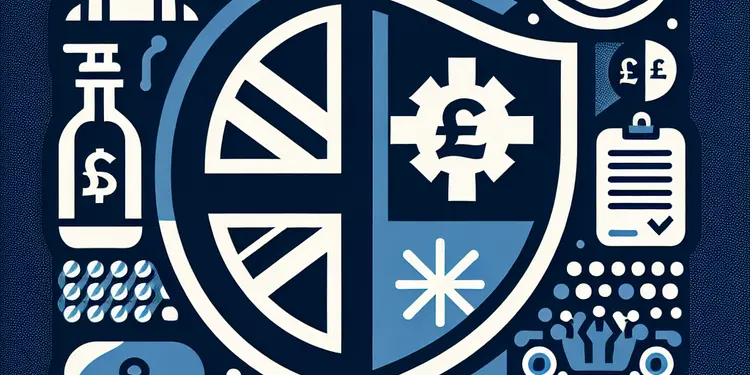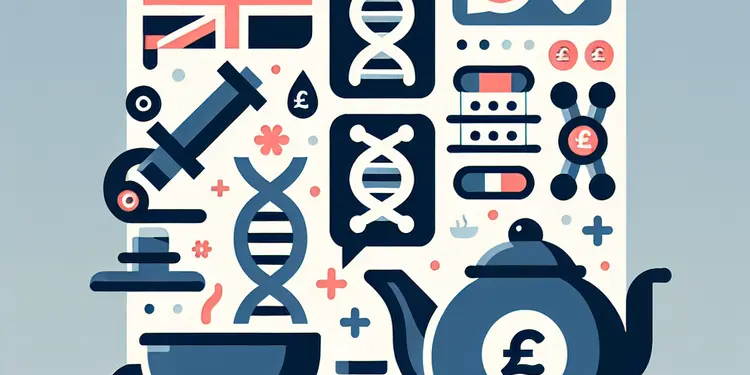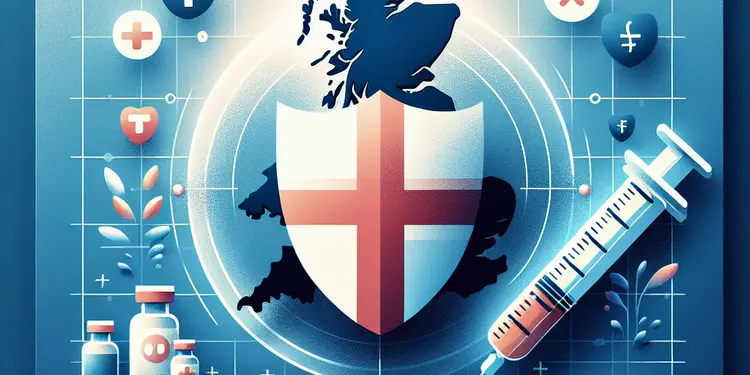
Find Help
More Items From Ergsy search
-
Do new variants affect COVID-19 testing?
Relevance: 100%
-
What is a COVID-19 variant?
Relevance: 87%
-
How often do new COVID-19 variants emerge?
Relevance: 85%
-
What is the Covid-19 Stratus variant?
Relevance: 85%
-
How are COVID-19 variants detected?
Relevance: 83%
-
What is the process to identify a new Covid-19 variant?
Relevance: 83%
-

How do scientists name new Covid-19 variants?
Relevance: 83%
-

Do vaccines work against new COVID-19 variants?
Relevance: 82%
-

How can I protect myself from new COVID-19 variants?
Relevance: 81%
-

Are new COVID-19 variants more dangerous?
Relevance: 80%
-
How do COVID-19 variants arise?
Relevance: 80%
-
Where can I learn about real Covid-19 variants?
Relevance: 75%
-

How can I protect myself from Covid-19 variants?
Relevance: 73%
-

Should I get vaccinated if I already had COVID-19?
Relevance: 65%
-

What sources should I consult for information on Covid-19?
Relevance: 64%
-

Are children more affected by new variants of COVID?
Relevance: 63%
-
New Covid Variant Strains
Relevance: 61%
-

Are new variants more transmissible?
Relevance: 61%
-

Can new variants cause reinfection?
Relevance: 60%
-
Does the flu vaccine protect against COVID-19?
Relevance: 59%
-
Can the COVID jab give me COVID-19?
Relevance: 58%
-
What are the COVID-19 travel restrictions for traveling to Spain?
Relevance: 57%
-

Can COVID-19 be transmitted through blood transfusions?
Relevance: 56%
-
Does travel insurance cover COVID-19 related issues?
Relevance: 55%
-

Is there concern about new hypothetical variants like Nimbus and Stratus?
Relevance: 55%
-

Will getting the flu jab protect me against COVID-19?
Relevance: 55%
-

What are the Nimbus and Stratus variants of Covid?
Relevance: 52%
-

Breathlessness after COVID-19 - helpful techniques
Relevance: 51%
-
Can air physiotherapy help with COVID-19 recovery?
Relevance: 50%
-

Should I be worried about new variants?
Relevance: 49%
-
Are the symptoms different with new COVID-19 variants?
Relevance: 44%
-

Is the Nimbus variant more contagious?
Relevance: 43%
-

What would happen if the Nimbus variant existed?
Relevance: 42%
-

Do all mutations in the virus lead to new variants?
Relevance: 42%
-

Is the COVID jab effective against new variants?
Relevance: 39%
-

Do vaccines protect against the Stratus variant?
Relevance: 39%
-
Can current treatments handle new COVID-19 variants?
Relevance: 39%
-
What are some well-known COVID-19 variants?
Relevance: 37%
-

How long does immunity last after getting the COVID jab?
Relevance: 36%
-

Are COVID jabs safe?
Relevance: 35%
Understanding COVID-19 Variants
The COVID-19 pandemic has seen the evolution of several variants of the SARS-CoV-2 virus. These variants arise due to mutations in the virus's genetic code, which can sometimes affect its behavior in terms of transmissibility, severity, and immune evasion. Notably, variants such as Alpha, Beta, Delta, and Omicron have been identified and monitored globally. Understanding whether these variants impact COVID-19 testing is crucial in managing and controlling the pandemic.
Impact of Variants on PCR Tests
Polymerase Chain Reaction (PCR) testing is considered the gold standard for detecting COVID-19. PCR tests identify the virus's RNA presence in a sample by amplifying it to detectable levels. These tests target specific regions of the virus’s genome. While some mutations could theoretically affect PCR test accuracy if they occur in the target regions, most PCR tests are designed to target multiple parts of the virus’s genetic material. This redundancy helps ensure that even if a mutation occurs in one region, the test can still accurately detect the virus using another region.
In the UK, laboratories continuously monitor the performance of PCR tests against emerging variants. So far, the commonly used PCR tests have remained effective against all known variants. Any identified risk of reduced sensitivity due to mutations is swiftly addressed by adjusting the test protocols or switching to unaffected assays.
Antigen and Rapid Testing
Antigen tests, including lateral flow tests, are particularly useful for their speed and convenience, although they are generally less sensitive than PCR tests. These tests detect specific proteins (antigens) on the virus’s surface. Certain mutations in these antigenic proteins might reduce the sensitivity of rapid tests. However, ongoing assessment and adaptation of these tests aim to minimize the impact of such mutations.
The UK health authorities ensure that rapid tests distributed and used are thoroughly evaluated for their effectiveness against the new variants, ensuring that they continue to serve as a reliable tool for mass testing and controlling community spread.
Genomic Surveillance and Continuous Assessment
The UK is a leader in genomic surveillance, regularly sequencing a significant proportion of positive COVID-19 samples. This high level of genomic surveillance allows scientists to rapidly detect new variants and assess their impact on diagnostic testing. This proactive approach ensures that the testing infrastructure is robust and can adapt to any changes posed by emerging variants. This surveillance helps in updating testing protocols, ensuring that vaccines and treatments remain effective, and containing the spread of the virus.
In conclusion, while new variants of COVID-19 have the potential to impact testing accuracy, the robust testing infrastructure and ongoing surveillance in the UK help maintain the reliability of both PCR and rapid tests. Continuous adaptation and monitoring are key to ensuring that testing remains a vital tool in controlling the pandemic.
Understanding COVID-19 Variants
COVID-19 is a virus that can change or mutate. These changes can make new types or "variants" of the virus. Some well-known variants are called Alpha, Beta, Delta, and Omicron. Knowing if these changes affect tests for COVID-19 is very important. This helps us manage and stop the spread of the virus.
Impact of Variants on PCR Tests
PCR tests are very good at finding COVID-19. They look for the virus in a sample from a person by making it bigger so it can be seen. PCR tests check several parts of the virus. This means, even if one part changes, the test can still find the virus using another part. In the UK, scientists watch how well PCR tests work with new variants. So far, PCR tests still work well with all the known variants. If there is a problem with the test, it is quickly fixed.
Antigen and Rapid Testing
Antigen tests, like lateral flow tests, are fast and easy to use. These tests find proteins from the virus. Sometimes, changes in the virus can make these tests less good at finding it. But scientists keep checking and improving these tests to make sure they still work well. The UK makes sure the quick tests they use are good at finding new variants.
Genomic Surveillance and Continuous Assessment
The UK is great at watching for new variants. They check many positive COVID-19 samples to see if any new variants are present. This helps scientists see if new changes affect how we test for COVID-19. By doing this, they make sure that tests, vaccines, and treatments still work well. This helps stop the virus from spreading.
In summary, while new variants can change how well tests work, the good work done by scientists in the UK helps keep tests reliable. They keep checking and improving tests to make sure they stay useful. This helps to control the spread of COVID-19.
Frequently Asked Questions
Do new variants affect COVID-19 testing sensitivity?
New variants could potentially affect the sensitivity of COVID-19 tests if mutations occur in the viral regions targeted by the tests, but most tests are designed to detect multiple regions of the virus, reducing this risk.
Can COVID-19 tests detect new variants?
Most COVID-19 tests are designed to detect the virus broadly and are still effective at detecting new variants, but surveillance and sequencing are necessary to confirm specific variants.
Are PCR tests reliable for identifying new variants?
PCR tests are generally reliable for detecting the presence of the virus, although specialized sequencing is required to identify specific variants.
Do antigen tests work for all COVID-19 variants?
Antigen tests can still detect COVID-19 variants, but their sensitivity may vary depending on mutations in the virus and the specific test used.
Have test manufacturers adjusted their tests for new variants?
Manufacturers actively monitor variants and may adjust tests or develop new ones to maintain accuracy as new variants emerge.
Is genomic sequencing required to detect new COVID-19 variants?
Yes, genomic sequencing is needed to identify and confirm specific COVID-19 variants.
Could new variants cause false negatives in COVID-19 tests?
It's possible if mutations significantly alter the virus in areas targeted by the tests, but such cases are generally rare.
How do new variants impact COVID-19 test validation?
New variants may require ongoing validation and evaluation of test efficacy to ensure accurate results.
Do rapid tests detect COVID-19 variants?
Rapid tests can still detect COVID-19 variants, but their performance may vary with different strains.
Why is monitoring COVID-19 variants important for testing?
Monitoring helps ensure test accuracy and guides public health responses to changes in virus transmissibility and severity.
Can LAMP tests detect new COVID-19 variants?
LAMP tests generally can detect new variants unless specific mutations affect the target sites of the test.
Is RT-PCR the best test for new variants?
RT-PCR remains a reliable test for detecting the virus, but identification of variants requires sequence analysis.
Do new COVID-19 variants affect antibody testing?
New variants can affect the sensitivity and specificity of antibody tests if they alter spike protein structures.
What is the risk of new variants escaping detection in current tests?
The risk is low due to multiple target sites in many tests, but it necessitates ongoing monitoring and adaptation.
Can mutations in new variants change COVID-19 test outcomes?
Mutations may change test outcomes if they affect the viral genome regions targeted by the test, but redundancy in most tests minimizes this risk.
Are there specific tests for tracking COVID-19 variants?
Sequencing tests are specifically designed to track and identify COVID-19 variants.
How do health authorities respond to new variants in terms of testing?
Health authorities may update testing protocols and guidelines and encourage genomic surveillance to track variants.
What role does genomic sequencing play in COVID-19 testing?
Genomic sequencing helps track the evolution of the virus and identify variants, complementing diagnostic testing.
Are home COVID-19 tests affected by new variants?
Home tests could be affected if variants carry mutations in areas targeted by the tests, but they generally still detect the virus effectively.
How do variant changes in the virus genome impact test design?
Variant changes can necessitate updates in test design to target other conserved areas of the virus genome to maintain accuracy.
Do new types of COVID-19 change how well tests work?
New changes in the COVID-19 virus can sometimes make it harder for tests to find the virus. This happens if the virus changes in the parts that the tests look for. But most tests are made to look at many parts of the virus, so the tests can still work well.
Can COVID-19 tests find new kinds of the virus?
Yes, COVID-19 tests can find new types of the virus. But some tests work better than others.
If you want to know more, you can:
- Ask a doctor or nurse. They know a lot.
- Look at pictures and diagrams. They help explain hard things.
- Use videos or audio. Sometimes listening is easier than reading.
Most COVID-19 tests work well to find the virus, even if it changes a little bit. These tests can still find new virus types. But, we need to keep checking which type of virus it is. This helps us know more about the different types of the virus.
Do PCR tests work well to find new types of the virus?
PCR tests can find if you have the virus. They do this by looking for tiny pieces of the virus in your body.
Sometimes, the virus changes and makes new types. These are called variants.
PCR tests are usually good at finding most variants. But, they might miss some new ones until the tests are updated.
If you have questions about PCR tests, ask a doctor or a nurse. They can help you understand. You can also use pictures or videos to learn more.
PCR tests are usually good at finding the virus. But to know which type of the virus it is, special tests are needed.
Do Antigen Tests Work for All COVID-19 Variants?
Antigen tests check if you have COVID-19.
COVID-19 has different types, called variants.
These tests can find most variants, but not all.
If you feel sick, see a doctor.
Ask if you need more tests.
Use easy tools, like videos, for help.
Antigen tests can still find COVID-19 variants, but how well they work may change. This is because the virus changes and different tests are used.
Have test makers changed their tests for new versions of the virus?
Companies that make tests watch for new changes in the virus. They might change the tests or make new ones to make sure they still work well.
Do we need special tests to find new types of COVID-19?
To find new kinds of the COVID-19 virus, scientists use a special test called genomic sequencing. This test looks at the virus's building blocks to see if it is different.
Using pictures or videos can help explain how the test works. Talking with someone who knows about this test, like a doctor, can also be useful.
Yes, we need a special test called genomic sequencing to find out exactly which kind of COVID-19 someone has.
Can new types of COVID-19 make tests say "no" when it's actually "yes"?
Yes, it can happen if the virus changes a lot in the parts that the tests look for. But this does not happen often.
How do new kinds of COVID-19 affect test checks?
COVID-19 can change and become a new kind. That's called a variant. When this happens, we need to check if the tests for COVID-19 still work.
Here’s what happens:
- Scientists look at the new variant.
- They use tests to see if they can find the new variant.
- This helps make sure that people who have COVID-19 get the right test results.
To understand better, you can:
- Use pictures or videos that show how tests work.
- Ask someone to explain it with simple words.
- Break down the information into small parts.
New types of the virus might need us to keep checking our tests. This helps make sure the test results are correct.
Can quick tests find different types of COVID-19?
Quick tests can show if you have COVID-19. COVID-19 can change into new types called variants. Sometimes, these quick tests might miss new variants.
If you're worried, a doctor can help. They might use other tests to be sure. Tools like pictures or videos can help understand better.
Quick tests can find COVID-19, even with new types. But some tests might work better with certain types of the virus.
Why is it important to watch COVID-19 variants for testing?
Watching new types of COVID-19 helps doctors know if tests work well. It is like checking if your toys still fit in the toy box.
Here is a tip: Try using pictures or videos to help understand the news about COVID-19.
Keeping track of tests makes sure they are correct. It also helps us know how to react when the virus spreads faster or makes people sicker.
Here are some ideas to help understand better:
- Break big words into smaller parts to say them easily.
- Use pictures or videos to explain ideas.
- Ask a friend or teacher to help if you're stuck.
Can LAMP tests find new COVID-19 types?
The LAMP test looks for the COVID-19 virus. It can find some new types, but not all.
Doctors use LAMP tests to help people know if they have the virus.
Ask a doctor if you need more information.
It can help to use pictures or videos to learn more.
Talking to someone who knows about health can also be good.
LAMP tests usually work for finding new variants. But if there are changes (mutations) in the exact spot that the test looks for, it might not work.
Is RT-PCR the best test for new germs?
Doctors use a test called RT-PCR to see if someone is sick with new germs. It helps find out if someone has a virus in their body. This test is very good at finding these germs.
If you are worried or need help to understand, you can:
- Ask a doctor or nurse to explain it to you.
- Use pictures to help you understand.
- Watch videos about how RT-PCR tests work.
RT-PCR is a safe test to see if the virus is there. But, to know what type of virus, other tests are needed to look at its genes.
Do new COVID-19 variants change antibody tests?
When COVID-19 changes, like becoming a new variant, it may affect tests that find antibodies.
An antibody test looks for signs of the virus in your body.
New variants might make it harder for these tests to work.
If you want help to understand, you can:
- Use pictures or videos to learn more.
- Ask someone you trust to explain.
- Look for easy-to-read guides online.
New virus types can change how well antibody tests work. This happens if the virus changes the spike shape.
Can new virus types hide from tests we have now?
The risk is low because there are many places we check in many tests. But we still need to keep watching and make changes if needed.
Can changes in the virus affect COVID-19 test results?
Sometimes, the virus that causes COVID-19 can change. These changes are called mutations. Some tests look for parts of the virus to see if you have COVID-19. If the virus changes a lot, the test might not work as well.
To help you understand better, you can:
- Ask a doctor or nurse to explain the test to you.
- Use pictures or videos about COVID-19 tests.
- Read with a friend or family member, so they can help too.
Viruses can change over time. These changes are called mutations. Tests look for certain parts of the virus to see if it is there. If the virus change happens in these parts, it might change the test result.
But don't worry! Most tests have special ways to make sure this doesn't happen. They look at many parts of the virus, not just one. This helps keep the test results accurate.
To understand better, you can:
- Use simple language tools or apps.
- Ask someone to help explain it to you.
Can tests find different kinds of COVID-19?
Sequencing tests are special tests that help find and follow different types of the COVID-19 virus.
These tests look for changes in the virus so that doctors can understand it better.
You can use these tools to help you understand:
- Ask a friend or adult to explain any hard parts.
- Use pictures and diagrams to make it easier to see how things work.
- Break up the text into smaller, easier parts and read slowly.
What do health helpers do about new virus types and testing?
When a new type of virus appears, health helpers change how they test people. They might test more people or use different tests to find the virus.
If you have trouble reading, you can:
- Ask someone to read things out loud for you.
- Use tools that read text for you.
- Look at pictures or videos that explain the ideas.
Health leaders might change how we test for the virus. They may also watch the virus closely to see if it changes. This helps us stay safe.
How does genomic sequencing help with COVID-19 testing?
Genomic sequencing is a way to look at the virus's genes. It helps doctors see which type of COVID-19 a person has. This is important because the virus can change. By knowing the exact type, doctors can find out how it spreads and if it is different from other types.
Tools that can help you learn more:
- Use pictures or diagrams to show how sequencing works.
- Watch videos for a simple explanation.
- Ask someone to explain with easy words.
Genomic sequencing is used to see how the virus changes over time and to find new types of the virus. It works alongside tests to see if someone is sick.
Do new COVID-19 variants change how home tests work?
Home tests might not work as well if the virus changes in certain ways. But most of the time, they still find the virus. Using easy guides or watching step-by-step videos can help you use the tests right.
How do changes in the virus affect tests?
The virus can change over time. These changes are called 'variants'.
When the virus changes, tests might need to change too. This is so tests can still find the virus.
Using pictures or simple charts can help explain this better. Audio files can help if listening is easier than reading.
Virus changes can mean we need to change tests.
We do this to make sure tests still work well.
Tests look at parts of the virus that stay the same.
Using a reading helper tool or asking someone to read it with you can make it easier to understand.
Useful Links
This website offers general information and is not a substitute for professional advice.
Always seek guidance from qualified professionals.
If you have any medical concerns or need urgent help, contact a healthcare professional or emergency services immediately.
Some of this content was generated with AI assistance. We’ve done our best to keep it accurate, helpful, and human-friendly.
- Ergsy carfully checks the information in the videos we provide here.
- Videos shown by Youtube after a video has completed, have NOT been reviewed by ERGSY.
- To view, click the arrow in centre of video.
- Most of the videos you find here will have subtitles and/or closed captions available.
- You may need to turn these on, and choose your preferred language.
- Go to the video you'd like to watch.
- If closed captions (CC) are available, settings will be visible on the bottom right of the video player.
- To turn on Captions, click settings .
- To turn off Captions, click settings again.
More Items From Ergsy search
-
Do new variants affect COVID-19 testing?
Relevance: 100%
-
What is a COVID-19 variant?
Relevance: 87%
-
How often do new COVID-19 variants emerge?
Relevance: 85%
-
What is the Covid-19 Stratus variant?
Relevance: 85%
-
How are COVID-19 variants detected?
Relevance: 83%
-
What is the process to identify a new Covid-19 variant?
Relevance: 83%
-

How do scientists name new Covid-19 variants?
Relevance: 83%
-

Do vaccines work against new COVID-19 variants?
Relevance: 82%
-

How can I protect myself from new COVID-19 variants?
Relevance: 81%
-

Are new COVID-19 variants more dangerous?
Relevance: 80%
-
How do COVID-19 variants arise?
Relevance: 80%
-
Where can I learn about real Covid-19 variants?
Relevance: 75%
-

How can I protect myself from Covid-19 variants?
Relevance: 73%
-

Should I get vaccinated if I already had COVID-19?
Relevance: 65%
-

What sources should I consult for information on Covid-19?
Relevance: 64%
-

Are children more affected by new variants of COVID?
Relevance: 63%
-
New Covid Variant Strains
Relevance: 61%
-

Are new variants more transmissible?
Relevance: 61%
-

Can new variants cause reinfection?
Relevance: 60%
-
Does the flu vaccine protect against COVID-19?
Relevance: 59%
-
Can the COVID jab give me COVID-19?
Relevance: 58%
-
What are the COVID-19 travel restrictions for traveling to Spain?
Relevance: 57%
-

Can COVID-19 be transmitted through blood transfusions?
Relevance: 56%
-
Does travel insurance cover COVID-19 related issues?
Relevance: 55%
-

Is there concern about new hypothetical variants like Nimbus and Stratus?
Relevance: 55%
-

Will getting the flu jab protect me against COVID-19?
Relevance: 55%
-

What are the Nimbus and Stratus variants of Covid?
Relevance: 52%
-

Breathlessness after COVID-19 - helpful techniques
Relevance: 51%
-
Can air physiotherapy help with COVID-19 recovery?
Relevance: 50%
-

Should I be worried about new variants?
Relevance: 49%
-
Are the symptoms different with new COVID-19 variants?
Relevance: 44%
-

Is the Nimbus variant more contagious?
Relevance: 43%
-

What would happen if the Nimbus variant existed?
Relevance: 42%
-

Do all mutations in the virus lead to new variants?
Relevance: 42%
-

Is the COVID jab effective against new variants?
Relevance: 39%
-

Do vaccines protect against the Stratus variant?
Relevance: 39%
-
Can current treatments handle new COVID-19 variants?
Relevance: 39%
-
What are some well-known COVID-19 variants?
Relevance: 37%
-

How long does immunity last after getting the COVID jab?
Relevance: 36%
-

Are COVID jabs safe?
Relevance: 35%


